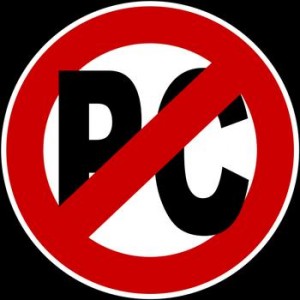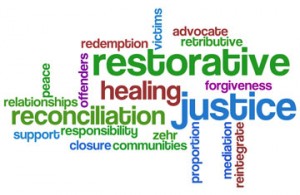“Can we all get along?”
Tuesday night at the MCI-Norfolk lending library, and my book discussion group has just set back the cause of brotherly love and acceptance at least 60 years.
This summer, at the behest of the Correctional Education Association, prison librarians and educators around the country have been invited to offer a discussion group on Bill Cosby’s book called Come On, People: On the Path From Victims to Victors. This invitation, our Department librarians are told, comes from William Henry Cosby, Jr. himself.
Having read the book, and having been Norfolk’s librarian for the past 18 years, I know several inmates champing at the proverbial bit to kick in their two cents. I decide to hand-pick the participants, a technique I’ve used unflinchingly for other DOC library courses, because it’s guaranteed to set the fur flying.
But walking into the library from a back office to start the class, I feel like I’m suddenly the focus of a Punk’d episode. All people of color are seated on one side of the room. All whites are seated on the other. It’s as if a racist Moses has tapped his staff onto the freshly-buffed linoleum and parted the group along color lines. Straight down the middle.
I work in an adult male medium-security prison. I have heard the vulgar and obscene language of convicted felons all the livelong day for months, years, and decades. I, myself, am a vulgar man, choosing the vernacular and worse more often than not to express my innermost feelings. Having said that, I still won’t spell out what I said to the group, but will edit the offensive part of the sentence and leave it to the reader’s own imagination to sort out. I said:
“You gotta be sh***ing me.”
In my feeble defense, I was so stunned, that’s all I could think of to say.
After about 5 mind-reeling seconds, my tongue un-sticks itself from the roof of my mouth. “Racial segregation’s alive and well in 2009! Didn’t the Civil War take care of all this? Remember hundreds of marchers scuffing up thousands of pairs of shoes so that this would become a shameful, distant memory? This is a joke, right? This is a set-up?”
Now, this class of men—and by now it’s evident that they have no idea what they’ve done—begin to look around the room at themselves. Some begin to chuckle.
One participant—a black man in his late 50’s whom we’ll call Ben—laughs and says, “Man, I didn’t even notice we did this until you called us out.”
A 50-something white man we’ll call Adam then jokes, “I guess Abraham, Martin, and John are looking down on us with scorn and condemnation.”
“How shameful is this?” I continue, “We’ve gathered as concerned Americans to discuss Cosby’s suggestions on helping our young Black males, and you guys can’t set aside your jailhouse racism for two hours?” No one here can give a plausible reason for why these 13 intelligent, educated men have arranged themselves thus. It was unconsciously done, they assure me.
“Now that the unconscious problem’s identified, will you please consciously mingle?” Nervous laughter. Nobody moves. “I’ll put it this way,” I said, folding my arms. “I won’t teach a class that looks like passengers in a 1964 Selma, Alabama bus.”
One of the participants on the ‘black’ side laughs, gets up, and takes a seat on the ‘white’ side of the room. “There!” he smiles. “Happy now?”
I am unimpressed. “Is this it? One measly concession to the cause of racial harmony?” I said, sitting down to my table in front of the room and picking up my Instructor’s copy. “No wonder Cosby has to keep writing these books.”
Black Rage at a Black Man
Each prisoner has been given a copy of the book to read ahead of time. It’s quickly evident that everyone has done their homework, because once these men start voicing their opinions, the criticisms come fast and furious. Everyone in the room has an opinion about the book, and most of what they feel is negative rather than constructive. I’m actually flummoxed when the arguments against Cosby’s ideas morph into attacks on his motives for writing the book, and even on his good character. These attacks take varied and creative forms:
- “Cosby’s a billionaire and out of touch with American blacks.”
- “Universities send their graduates into the world with an institutionalized point-of-view. Cosby is a product of that system.”
- “There’s a generation gap with Cosby.”
- “Cosby’s a comedian. He’s not a sociologist. “
- For a guy who writes about family and fatherhood while he’s cheating on his wife – who’s he to be telling me how to live?”
- “He’s well-intentioned, but he doesn’t get why kids act like they do.”
- “He’s back-pedaling from some inflammatory statements he caught hell for. This book is his attempt to clean some of that up.”
The arguments are familiar—clichéd, actually. The themes boil down to:
- The man’s educated, which disqualifies him from talking about the ‘hood
- The man doesn’t have the right education
- The man’s a hypocrite
- The man’s too old
- The man’s too rich
- The man’s a sell-out/ an Oreo/ not Black enough
- He’s only Bill Cosby
It’s very tempting to write off the negative diatribes of this group as just so much incarcerated sour grapes. Keep in mind that many of the men in this room have contributed to the problems with which Cosby is concerned. Because of their imprisonment, this discussion with these men of a book identifying problems with Black America and offering solutions feels, at times, like nothing more than criminals belittling and shouting down any honest, earnest attempt to identify their criminality and refocus their lives. As the discussion continues, I begin to notice with some alarm that some folks in this room are not simply in disagreement with Cosby—they are angry with him.
Since I don’t see the need or justification for this anger, I call them on it.
Ben raises his hand.
“When I lived at home, I used to bring my friends in the house, and some of them were hoodlums. My mother would walk in the door, see me with these hoods in the living room, and go off on us: “Why are these SOBs in my house? Get these people out of here, now! And don’t bring them back!” My father used a different approach. He’d open the living room door, beckon me with his finger, and say “Lemme see you a minute?” When I got to him he’d say, “Get those hoodlums outta my living room.” Different approaches, same results. But with my father, my friends had a chance to leave with dignity. And I didn’t have to be embarrassed in front of the people I rolled with.
He takes a breath.
“Cosby makes the same mistake my mother made. He’s airing our dirty laundry in public. He should’ve taken a page out of Farrakhan’s game plan and kept this stuff behind closed doors. Instead, he writes a book for the whole world to read that tells me “You’re effing up, it’s all your fault, and now I have to straighten your mess out ‘cause you’re too dumb to figure it out yourselves.” That’s not only embarrassing for us, but degrading. He should know better than that.”
“Perhaps, like me,” I say, “He knows you’re adults, and that you can take it. You’re not children anymore, when Mommy and Daddy had to couch things a certain way in order to cut through your teenage belligerence. Cosby actually respects you, and wants you to respect yourselves and each other. He treats you like the men that you are, instead of the boys that you used to be. And by the way, when innocent people of all colors are being anonymously murdered by stray bullets being shot from moving cars, the problem becomes greater than the ‘It’s our house’ mentality.”
“Aw man, you sound just like Cosby,” someone says.
“How does Cosby sound?” I ask.
“White!” someone else says. Some of the class laughs in agreement. Racism is a natural jailhouse inclination.
“Really? And why should showing care and concern for black Americans sound “white” to your ears and minds?”
Ben sits up straight in his chair.
“If we as black America decide to get together, to organize our communities, to create another Panthers, the Powers That Be shout “No, no, no!” and won’t allow it. But responsibility for what’s gone wrong in our neighborhoods has also to be accepted by the whole of America, the power structure as well as the black community. Cosby’s part of the power structure. If Cosby was sitting with the brothers on this side of the room when we decided to organize, he’d be the first to break ranks with us, because his education and life experiences would send him to the other side of this room.”
You Did It, But It’s My Fault Too!
What about the ‘white’ side of this room? I ask Tim, a fellow who’s participated well in several of my other courses to share his impressions of the book. Tim says:
“I couldn’t relate to any of it. It was written for someone other than me. Reading this was like listening to a couple in the next room arguing over something in a foreign language.”
This statement was then examined by the group. When I say “examined,” I don’t mean to imply that people took these comments to task directly, or that anyone else commented immediately after the speaker was finished. Rather, a strange, slow metamorphosis occurred between the time these words were spoken and the discussion’s end two hours later. The progression followed along these lines:
“Aren’t these problems kind of like what we go through growing up, no matter what your color or race?”
“Except for the racism, I think all men in this prison can relate to many of the same problems of poor black young men.”
“ Anyone who grew up poor in America can relate to unsafe neighborhoods, crime in the street, bad education, bad home life. We’re all Americans, and this is an American problem.”
“These problems ultimately affect us all. We’re all responsible for what’s wrong, not just the young poor American black man.”
Freddie says, “We need to get black America back on its feet and be self-sustaining. And c’mon, Cosby ain’t the first to deliver this message, there’s Cornell West and Henry Louis Gates and W.E.B. Dubois and Cynthia Dolores Tucker and all the others. In this book, Cosby uses our past on purpose, starting with the 1950’s, to illustrate the progression of this social tragedy, our American tragedy.”
Although we began the evening with the view that only poor young African-American men could begin to relate to the book’s message of urgency and hope, we ended the night on the most clichéd of all imaginable liberal creeds: ‘We are all responsible.’
Not everyone in this group left the room with that opinion, of course. Some men attempted to keep the focus on the very real problems of the street, and on some of Cosby’s solutions. Glenn says, “But we must admit that a lot of what he says hits home – we have opportunities today that he didn’t have back in his day.”
“What has Bill ever done for us?”
“Well, it’s about time!” I interject. “Here’s a question for you – what did Bill Cosby do in the 60’s and 70’s to help the Civil Rights movement?”
Only two of the black gentlemen in this group of thirteen are older than 50. These men have very different responses.
Ben says “Yeah, I was in my teen in the 60’s. Other than him making comedy records, I don’t recall him marching or going to jail for any of us. Martin did more for us than he ever did. While Malcolm and Martin and Elijah Muhammad were standing up, Bill was busy making money.”
The other man, whom we’ll call Abdul, patiently listened then said, “I myself was a teen in the 60’s. I do remember Cosby coming out and doing things. I remember Cosby saying things. I remember, too, that standup comedy was a Jewish male or a white male profession, and I remember when you never saw one of us on TV. You know who changed all that? Bill Cosby. Cosby came on TV, Cosby went onstage. And not as some Steppin Fetchit caricature, but as an intelligent secret agent, and as an intelligent funny black man who was just standing up there being himself. That’s the first time I ever saw that. Cosby broke that ground.”
Because I have a comedy album collection at home numbering in the thousands, it occurs to me to interject this notion: “When Bill Cosby worked onstage, his audiences were predominantly white. And Bill made these white people laugh, which meant they enjoyed themselves. So these white people would come back, slap their money down, maybe even bring a white friend along.
“But it’s the way he got these white folks to laugh that elevated his work above mere entertainment. Recall that this wasn’t a guy who, like Dick Gregory, was talking specifically about the race problem. Cosby tried something different. Cosby talked about wives and husbands trying to live together in something approaching peace and harmony, he talked about parents and the monumental task of trying to raise their children without giving into the impulse to kill them, he talked about the human creature’s uncertain and comical relationship with his unseen Creator, and the tribulations of just being a kid growing up. No one in the civil rights movement had thought to do this before. Cosby did.
“I agree,” says Abdul, “Bill showed white and black America what they had in common. Night after night, his message to each white person in those seats was “We’re the same, and your laughter proves it. You couldn’t laugh at this if you couldn’t relate to it.” With Cosby up onstage it was a little victory for civil rights, because each time a white person laughed, it brought a few of them closer to the idea that black people are OK and should be accepted. And when you consider the turbulent time in which he worked, you gotta admit–the man had guts.”
Silence. Somebody dropped a pin. We all heard it hit the floor.
A young man named Glenn says to Abdul, “You sayin’ a comedian doing a stage routine is the same thing as protesters getting bitten by dogs and squirted with hoses?”
“I’m saying that their sacrifices would have had less of an impact on the conscience of white America if they weren’t also hearing Cosby’s message in nightclubs, listening to his records in their living rooms, and choosing to watch him on their TVs.”
Sympathy for Uncle Tom
Next to speak is a man whom we’ll call Teddy. Teddy helps me facilitate these discussions, he’s a recent graduate of Boston University’s outreach to prisoners program, and is a human being who feels so acutely for his fellowmen that we have to take a Brillo pad to the linoleum to scour out the crimson stains from his perpetually-bleeding heart. After raising his hand, Teddy opens a new line of inquiry:
“I had conversation with a black man in my housing Unit, a man who has very strong opinions about what society has done to American blacks. After I was finished with Cosby’s book he asked to read it. When he was finished, I asked him his impressions. He says he feels in some respects that Cosby is an ‘Uncle Tom.’ Does anyone have any feelings on that perspective?”
Abdul does.
“Don’t use the term ‘Uncle Tom’ until you have read Uncle Tom’s Cabin. In this book, Uncle Tom gets whipped face-first because he refuses to tell the slave master where two slaves have fled. Simon Lagree whips him to death. Uncle Tom was a great hero of that novel, and the novel was important for its time. ‘Uncle Tom’ as it’s used in our popular culture is a perversion of the original meaning. I would advise your friend in the Unit to be careful to use words and phrases correctly. Words represent you.”
Teddy smiles.
Abdul continues. “I have a question for this group, because I’ve heard a lot of negativity tonight about this,” he says, holding up his copy of the book. “My question to you is: Is Cosby right?”
There is a general murmur of assent throughout the room that he is.
“OK. Now – Is Cosby’s book a blueprint for solving these problems?”
There is a general howl of disagreement that it isn’t.
“OK, so it’s not the problems he’s identified, it’s the solutions he’s presented that you can’t agree with. OK. But here’s something that we must agree on—if we as black men don’t understand that we’re in trouble, if we don’t get that our neighborhoods are crumbling, if we don’t lead the way and do something to stop it—what will be the outcome?”
Silence.
“As long as fathers keep going to jail, kids will turn to the streets,” Abdul concludes. “Why? Because the father’s not there to watch TV with his kids, the father’s not there to listen to rap music with his kids, the father’s not there to teach the kids why the ‘N’ word is degrading and hateful and hurtful. Kids miss that male guidance. Nothing can replace that.”
And a Child Shall Lead Them
Now a latino named Miguel sits up and raises his hand. All of 23 years old, Miguel grew up in Boston’s south end knowing poverty, racism, crime, a one-parent family, and street life. Since coming to prison, Miguel has turned himself around, parlaying his thug existence for a Boston University degree. But right now, Abdul has lit a fire under him and he cannot sit still.
“I’ve been listening to people here, especially the OG’s, and I gotta say something to them. Here you sit, your second and third prison terms, a lot of you. Exactly who is raising your children? You talk about how important it is to be there for them, but you’re talking about it while you sit in jail.”
Gregg says, “Hold up, young brother. You don’t know all the facts. Don’t go judging what you don’t know.”
Miguel continues. “You’re here, not there– right or wrong?”
“That’s not the whole story,” Gregg shouts back.
“Right or wrong?”
Gregg sighs and turns his head.
“Kids need that male guidance, “Miguel continues. “They need limits, discipline. They need you at their bedside for that hug and good-night kiss, they need you for answers when life gets too hard, they need you to keep them from running to the streets. They don’t need your jailhouse letters, or copies of your program certificates, or promises over the phone. They need a father, and they need him there, not here. I never knew my father. I know what I’m talking about. I ran to the street because there was no man in my way to say ‘No.’ Now ‘cause my father wasn’t there, here I am sittin’ in jail with you.”
“You were the one who chose the street over your mother and family,” Gregg says. “Nobody shoved you out the door; you went willingly. Shoulder some of that blame, little man. You didn’t suddenly just wake up in a cell not knowing how you got here. You chose this.”
“Definitely. All my friends were doin’ it, so I wanted it, too. But if Pops had been around, maybe I wouldn’t have followed the crowd so easily. You only know what you see. When everyone’s doing it, how can you know it’s wrong?”
A man whose jailhouse nickname is ‘New York’ says, “Peer pressure has a lot to do with why these things happen to us. I had to throw away good grades and an education because my parents had an accent which I got teased for, and my friends thought that school was dumb. My dad always told me that I was destined for great things and I could be whatever I wanted to be. The street took away all that.”
“Learned behavior is at the root of these problems,” interjects Tim. “Kids imitate what they see, even if what they see is wrong. Learned behavior is a trap, because you can’t see the choices, the alternatives.” He pauses, and then adds: “A man falls back on what he knows.”
Freddie says, “Many young minorities have been disconnected from the struggle. They’ve simply lost their way. Cosby is saying, ‘The fledgling needs someone to guide him.’ He’s saying that you should be raised to be functional in society. There’s a place for Ebonics, for example, but it’s when you’re with your posse, not when you’re sitting in the classroom trying to learn.”
Big Poppa
Adam smiles.
“Raising kids to be functional is how I saw the whole tone of the book, in light of the age of the author and the young men he’s targeted. The book is a conversation between a grandfather and his grandson. He’s giving the grandson life instruction—how to speak, how to dress, how to choose what to listen to and what to watch, how to act around your elders, even hygiene advice. And this advice is given so that the grandson can avoid all the evil social traps that the culture lays for young black men who may not understand what they’re up against. It’s good advice, given in love, and he certainly meant well.”
On hearing the words “meant well,” Ben rankles. “Yeah, well, you know, ‘The road to Hell is paved with good intentions.’ Do y’all remember the Cosby episode about him meeting his daughter’s fiancée for the first time, and he don’t like the guy?” Cosby tries explaining to the man that it’s not him per se that he doesn’t like, it’s the way he’s being presented to him by the daughter. To illustrate to the young man the way he feels, Cosby asks the young man to imagine his favorite meal with all the trimmings, and then asks him to imagine that wonderful tasty meal being handed to him on the dirty lid of a garbage can.”
Many people in the room begin to smile, and comments like “I remember that show!” and “That’s my favorite episode!” are heard.
“Well, Cosby’s point is that if his daughter had introduced the fiancée in a more palatable manner, then the parents could’ve more easily accepted him. It’s all in the presentation. That’s how I feel about this book. If Cosby had kept it between us and him, and if he wasn’t preaching to these young bangers like he’s some almighty savior on a soapbox, the message would have a chance of getting through to them.”
“All grandfathers come at you from a superior vantage,” Adam says. “It’s the natural scheme of things: they have wisdom that you don’t have, but that you need. We’re taught to respect our elders, and we respect them by listening to their advice. If we love them, we honor them by applying what they know to our own lives.”
Like a Motherless Child
Right about now I’m reminded of the adage, ‘Damned if you do, damned if you don’t.’
I stand up. “This is how I see it. Out of concern for their future, William Henry Cosby, Jr. has stuck his neck out for the thousandth time for his troubled people. He’s not only trying to wake them up, he’s also giving them solutions. I’d say the book is an act of love, and of hope. Anyone agree?”
General murmurs.
“So now you’re gonna buy Bill a ‘Thinking of You’ card in the canteen, sign it and send it to his agent?”
General laughter.
Ben says, “For two years he organized all those Call-Outs. What I’d like to see is Cosby willing to come into these joints and debate those of us who have problems with his style of communication.”
Maybe someday he will.
Then again, maybe he knows already what he’ll hear.
 They’re both lifers. So the one is wishing immortality on the other. He’s saying, “I hope you suffer in prison for eternity!”
They’re both lifers. So the one is wishing immortality on the other. He’s saying, “I hope you suffer in prison for eternity!” 








